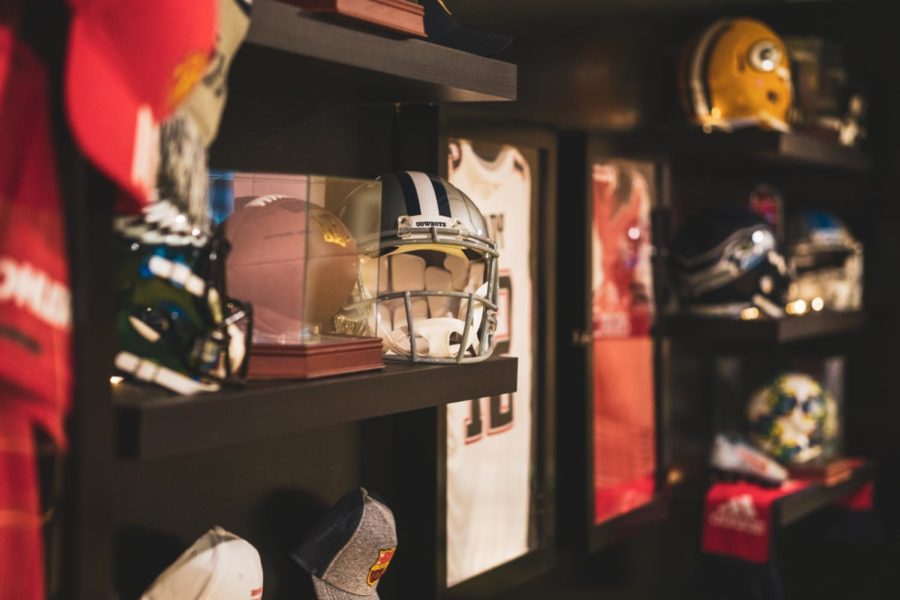Fantasy Overload
Fans of football await the upcoming Fantasy Football draft season.
As of 2018, 21% of Americans were signed up for a fantasy football league. A league that controls manys lives for 16 weeks or more, filled with countless hours of research and decisions fills up the lives of these 21%. Research consists of who might be a ̈sleeper ̈ where a player isn’t predicted to have a good year but does or who might be a ̈bust ̈ where a player is predicted to have a great year and doesn’t.
Teachers here are a part of that 21%, as many of them are involved in a fantasy football league, some of which are for fun and some of which are for money and get very competitive. “My team is very competitive,” science teacher Jacob Boling said. “We have to spend money to play fantasy football and have set up a pot to keep it interesting.”
Even students get involved in the chaos. “I’m really excited for fantasy football this year. I’ve spent so much time figuring out who to draft. I really feel like I have a chance to win this year,” Trent Matheney (’21).
With several hours spent researching the players, Damien Payne (’21) feels like he has a solid team. “D’andre Hopkins, [on the Houston Texans], and Adam Thielen, [on the Minnesota Vikings], are star receivers and I think they are really going to important throughout the season,” Payne said, who picked up both of them in his draft.
Some leagues even have buy-ins and punishments for coming in last. Fantasy league buy-ins have been seen ranging from $10 all the way to $10,000 in extreme leagues, but the average buy-in across the country is $50, with the average winner taking in $350. The punishments for last place aren’t as exciting as the winners reward, as most last-place finishers are required to do lots of things, like buying a meal for the whole league or wearing a rival teams jersey for a day. “This is my first year of playing fantasy football so I feel like there’s a good chance I end up in last, which really scares me because I really don’t want to do the punishment,” Sam Moore (’21). In some leagues people have been required to get tattoos of the winners choice or wearing an outfit with a sign and walking around town.
With almost 75 million Americans playing fantasy football, you might wonder how much time is really spent researching player stats and watching the games. On average, the everyday fantasy football player usually spends around six hours during the week on the app or watching games and around six hours on the weekends. That’s 12 hours per week spent researching, reading insights and watching games for their fantasy football team.
Although some see fantasy football as a waste of time and money, it is a great way to bring people together and for friends of all ages to have some fun with one another, and while some have to be embarrassed as punishment, there’s a lucky few get to make some money in the process.








Connor • Sep 13, 2019 at 8:10 AM
Very Good Article I agree sam will come in last
Brandon Lacke • Sep 5, 2019 at 4:26 PM
Loved the article about fantasy football and glad to see you writing about sports since we left high school